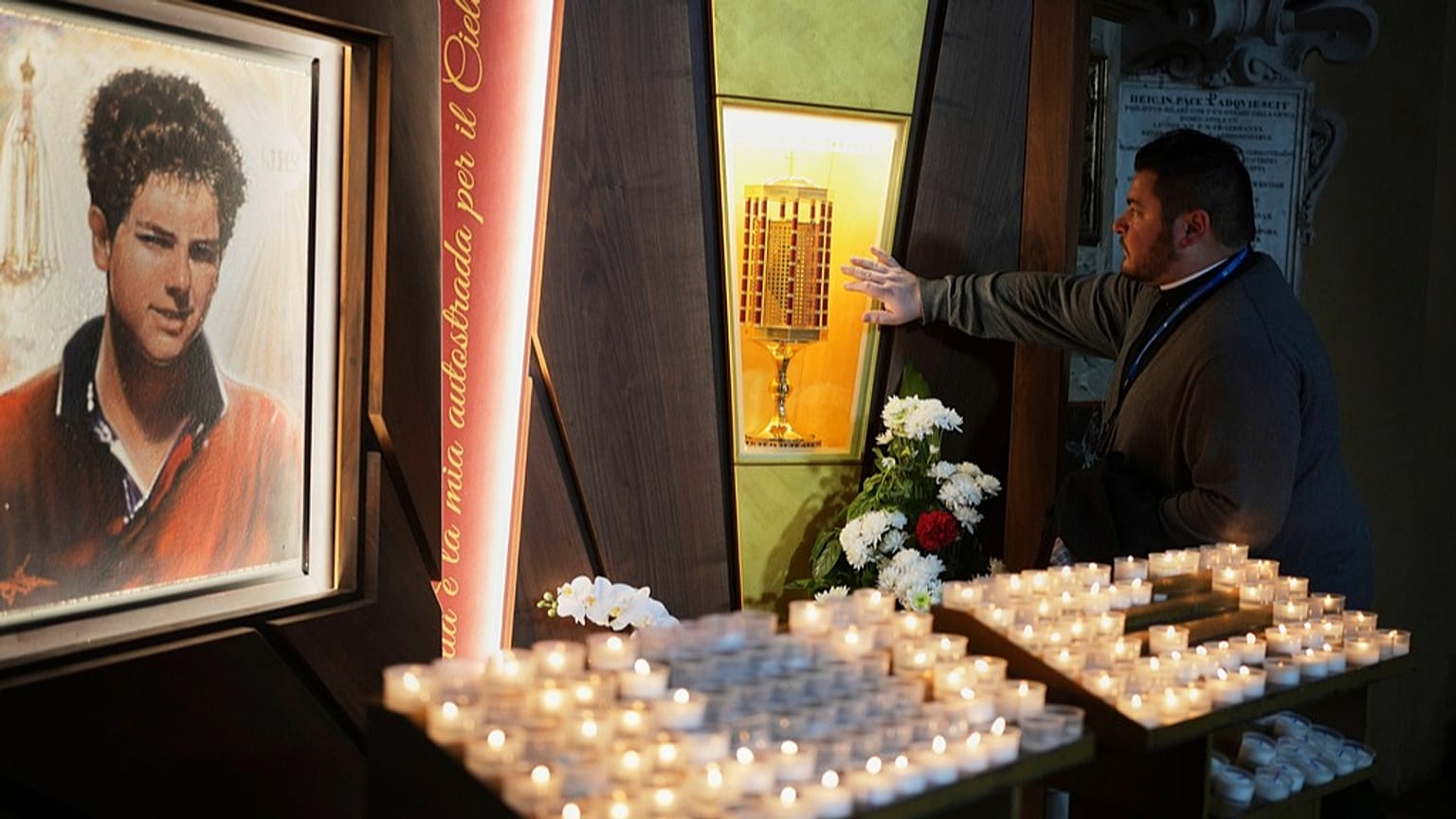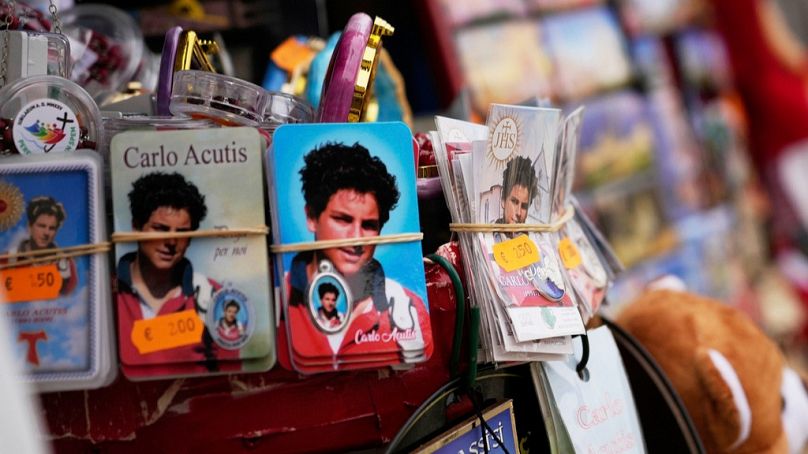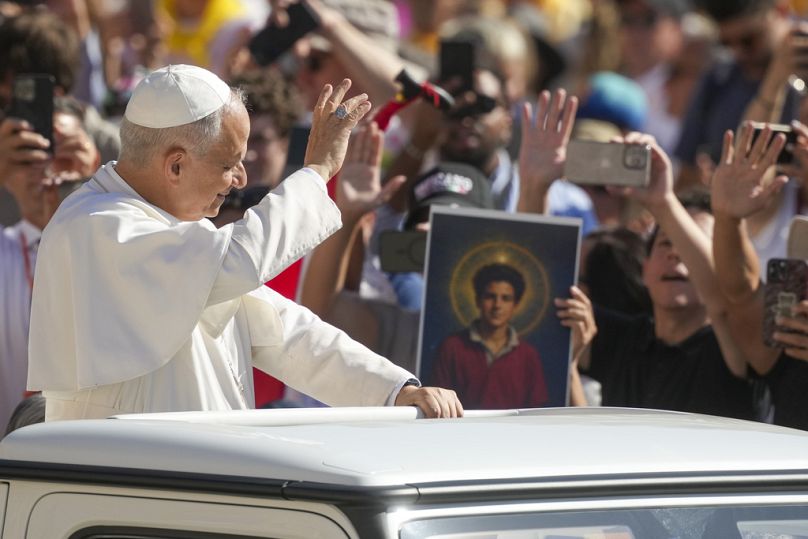London-born Italian boy Carlo Acutis was a computer whiz with a talent for coding and a love of video games, according to his mother.
Could a PlayStation controller become a modern relic of the Catholic Church?
The recent canonisation of Carlo Acutis, the church's first millennial saint, has renewed fascination with the relics of the UK-born Italian boy nicknamed "God's influencer".
Pope Leo XIV this month canonised Acutis — who died of leukaemia in 2006 aged 15 — during an open-air Mass in St Peter's Square before an estimated 80,000 worshippers.
In recent years, relics such as strands of Acutis' hair, his pericardium — the membrane enclosing the heart — and a piece of cloth touched by the saint have been displayed in churches worldwide and drawn hundreds of thousands of worshippers for prayers.
Much of the interest in now-Saint Acutis relates to his love of technology and talent for coding.
One of his main legacies is a website documenting so-called Eucharistic miracles recognised by the Church.
Acutis was also a keen gamer. He was given a PlayStation at the age of eight, but limited himself to just an hour of gaming a week, according to media interviews with his mother.
There is speculation among gamers and religious analysts about whether the PlayStation controller used by Acutis would be considered a second-class relic by the Church.
Fraud and theft
The Catholic Church categorises relics into three classes. First-class relics are the body parts of a saint. Second-class relics cover objects that were owned or frequently used by a saint during their lifetime.
Lastly, third-class relics are items that have been in contact with a first or second-class relic. They are typically small objects — such as a piece of cloth.
In his newsletter Modern Relics, religion writer Rohan Salmond said he believes that Acutis' PlayStation controller now counts as a second-class relic.
Reddit users have made the same argument on several threads in Catholicism-focused and gaming forums.
However, it is unknown whether the Vatican has given any consideration to such claims.
In April, the Catholic Church asked police in Italy to investigate the online sale of some purported relics of Acutis. Their sale is strictly forbidden.
An anonymous seller had put up for online auction some supposedly authenticated locks of Acutis’ hair that were fetching upward of €2,000, according to the Diocese of Assisi.
Bishop Domenico Sorrentino said at the time that selling relics would constitute a “great offence to religious belief".
And just this week, a third-class relic of Acutis — a small, circular piece of cloth — was reported stolen from a parish in western Venezuela.
The relic, which was kept in a glass reliquary at the Santo Domingo de Guzmán parish in Mérida state, disappeared just two days after Pope Leo XIV declared Acutis a saint.
It is common for the Catholic Church to give or lend relics — always for free — to be shown for veneration at parishes and other churches. In this case, the Venezuelan parish had requested the relic when Acutis was declared blessed, a step prior to sainthood.

















